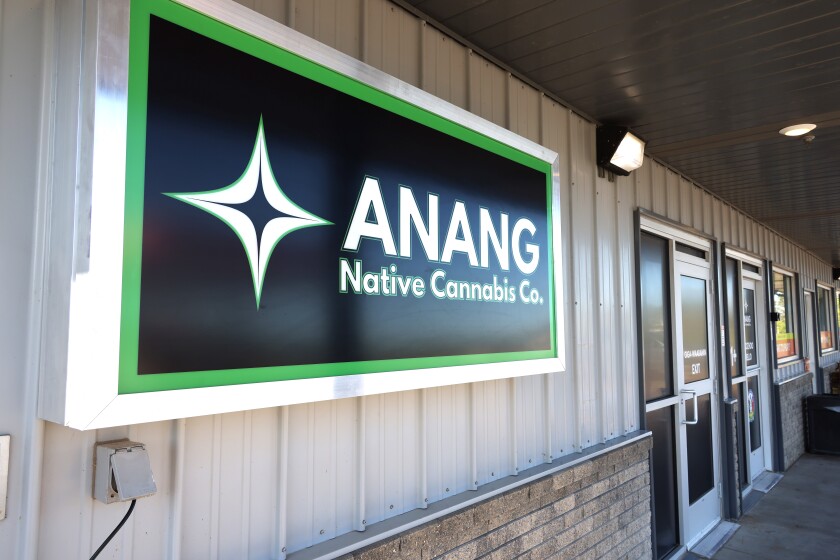Fond du Lac Band enters state’s cannabis market
October 31, 2025
CLOQUET — The Fond du Lac Band of Lake Superior Chippewa entered an agreement with the state of Minnesota allowing the band to distribute and sell its tribally grown cannabis off reservation and across Minnesota’s burgeoning cannabis market.
The compact, signed Oct. 20 by Gov. Tim Walz and Fond du Lac Band Chairman Bruce Savage, creates a legal framework for the band to expand its cannabis operations by selling its product to dispensaries across Minnesota and forging a pathway to open off-reservation dispensaries.
“It is really a unique type of relationship that we are establishing between the tribes and the state here in Minnesota,” said Josh Collins, director of communications for the Minnesota Office of Cannabis Management, the state agency regulating Minnesota’s cannabis industry.
The compact creates a framework for both governments to cooperate and coordinate their respective cannabis industries, and ensure that products meet the regulatory and safety guidelines for those sold outside of tribal land. It lays out rules for how tribal cannabis businesses interact with the state’s licensing system by regulating testing, packaging and labeling, Collins said.
The Fond du Lac Cannabis Regulatory Commission will oversee licensing and enforcement to ensure all products meet Minnesota’s Office of Cannabis Management legal standards. As a sovereign nation, the Fond du Lac Band regulates its own cannabis production and distribution within its boundaries. Officials from the band declined to be interviewed.
“This compact is more than a regulatory agreement,” Savage said in a news release. “It reflects our tribal sovereignty, our values as Anishinaabe people, and our vision for economic self-determination.”
The agreement is the fourth such compact signed between the state and the 11 tribal nations that exist within its borders. The state has similar signed compacts with the White Earth Nation, Mille Lacs Band of Ojibwe and Prairie Island Indian Community. The state hopes to eventually sign a compact with each tribal nation interested in participating in the cannabis industry.
In addition to selling cannabis across the state, the compact allows the band to open up to eight off-reservation retail cannabis locations.
The band is permitted to open one retail location per city and three per county, according to Collins. Local governments may count tribal compact retailers toward the state requirement to allow at least one cannabis retailer for every 12,500 residents. The Cloquet City Council has
set restrictions
on where such businesses can be located in Cloquet, but opted not to put a cap on the total number allowed.
While the state taxes most off-reservation cannabis products at a rate of 15% of gross receipts, the compact makes the tax rate negotiable if the band opens any cannabis businesses not on tribal land.
In May, the band
opened Anang Native Cannabis Co.
, deriving its name from the Ojibwe word for star. At the time, stakeholders said they hoped the band would be a guide for the state’s industry. It was the first dispensary to sell all forms of cannabis in northeastern Minnesota.

Wyatt Buckner / File / Duluth Media Group
When Minnesota legalized cannabis in 2023, the state Legislature directed the governor’s office to negotiate intergovernmental agreements with the tribal nations residing within Minnesota, which was intended as an equitable solution that generates revenue for both the tribal governments and the state.
The compacts signed with the various tribal governments are unique. Collins said the signed compacts have taken about a year to negotiate so far.
As dispensaries
open up across the state,
access to cannabis remains extremely limited due to growing operations still being established. Currently, the majority of cannabis being sold is being grown by either tribal nations or by the state’s two existing medical cannabis growers, Collins said.
“It is both a way to ensure equity in the system, but it’s also an opportunity to bring in additional product to the system,” Collins said.
Search
RECENT PRESS RELEASES
Related Post



